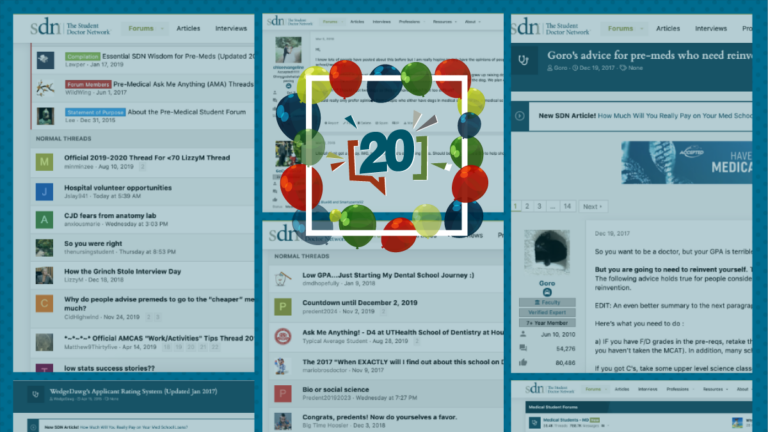What to Expect Preparing for the USMLE Virtually
Jia Wei Tan came from Malaysia dreaming of completing her residency in the U.S. and ... Read more
Written by: Jia Wei Tan, PhD, MD and Anupam Garg, PhD
Published on: April 8, 2021
Jia Wei Tan came from Malaysia dreaming of completing her residency in the U.S. and ... Read more
Written by: Jia Wei Tan, PhD, MD and Anupam Garg, PhD
Published on: April 8, 2021

Social media platforms lit up when sponsors of the U.S. Medical Licensing Examination (USMLE) announced ... Read more
Written by: Bethany Erb
Published on: March 18, 2021

Today, the stakes are higher than ever to absorb as much information as possible during ... Read more
Written by: Mark Heslin
Published on: August 24, 2020

Medical students, residents, and other health professional students are running into significant issues as they ... Read more
Written by: Laura Turner
Published on: May 19, 2020

Updated June 21, 2021. The article was updated to correct minor grammatical errors, and technical ... Read more
Written by: Kunal Sindhu
Published on: March 10, 2020

What are “The Boards”? The MCAT consumes the minds of premed students. However, an even ... Read more
Written by: Harrison Snyder
Published on: December 5, 2019

In honor of SDN’s 20th birthday, we have compiled a list of the most popular ... Read more
Written by: Student Doctor Network
Published on: December 2, 2019

For many medical students, and especially those nearing the end of their second year, one ... Read more
Written by: Emily Hayward
Published on: August 15, 2019

Lessons I Learned During My USMLE Step 1 Exam The USMLE Step 1 exam was ... Read more
Written by: Cassie Kosarek
Published on: November 14, 2018

Step 1 of the United States Medical Licensing Examination (or USMLE) covers all preclinical topics ... Read more
Written by: Cassie Kosarek
Published on: June 13, 2018

Last year, over a thousand American senior medical students, failed to Match into a residency ... Read more
Written by: Mohamed Gad
Published on: March 6, 2018

There’s no question that medical school is tough, especially when you consider the amount of ... Read more
Written by: Eric Brown
Published on: November 13, 2017

No matter how you plan on preparing for boards, getting started sooner than later is ... Read more
Written by: Boards Boot Camp
Published on: September 22, 2017

Finally on the other side! This morning I soaked in the luxury of not having ... Read more
Written by: Adelle
Published on: June 20, 2017

Updated December 8, 2021. The article was updated to correct minor grammatical and technical errors. ... Read more
Written by: Patrick C. Beeman
Published on: January 10, 2017

Studying for the boards overwhelms most people. The sheer amount of information to know is ... Read more
Written by: Patrick C. Beeman
Published on: April 29, 2016

1. Set a goal As the saying goes, “being begin with the end in mind.” ... Read more
Written by: Elsevier
Published on: April 26, 2016

Do you know of a colleague who is extremely good at their job, yet cannot ... Read more
Written by: OUPBlog
Published on: April 26, 2016

Physiology is different! If you’re in the midst of learning physiology, either in a traditional or ... Read more
Written by: Elsevier
Published on: April 25, 2016